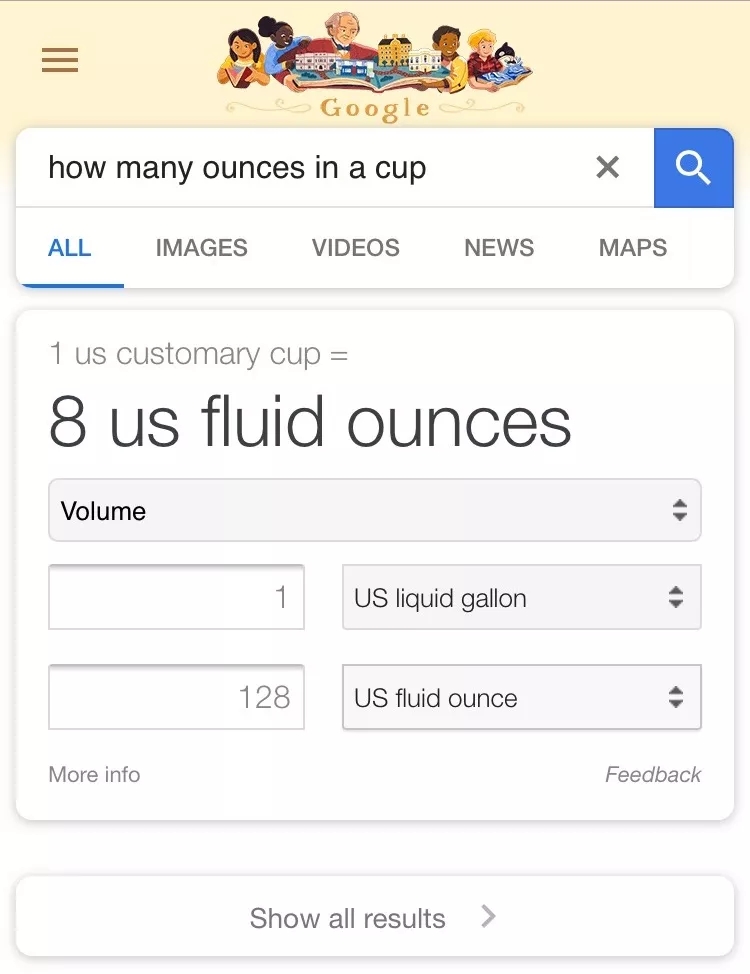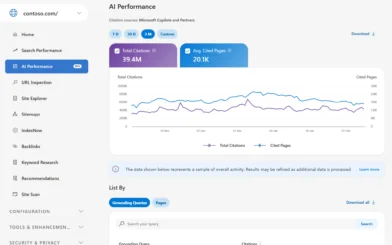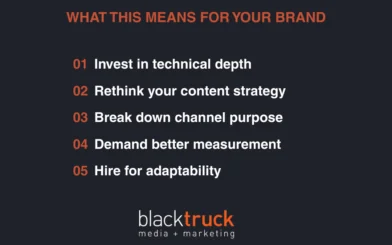On the heels of Google’s recent core algorithm update was a change to how Google displays search results for certain queries, such as local time, measurement conversions, and calculator searches. Those discussing this change in the search community are calling it “zero-result SERPs,” as rather than having the usual Featured Snippet/Knowledge Card (if applicable) and a list of blue links, these search engine result pages show only the snippet that quickly answers the query.
We discussed this timely topic on Episode 38 of The Redirect Podcast, and we also wanted to share our initial thoughts on the matter here on the blog.
Though Google has since reverted zero-result SERPs (as of the evening of March 20th), we can take this brief experiment as a sign of what is to come from Google after they learn and make adjustments from the trial run.
“This is Only a Test”
Our initial take on this update: Don’t panic! For one, it is still considered an experiment. Secondly, the one-result SERPs are in “specific, isolated cases” – Dr. Pete from Moz tweeted that they saw no major shifts occur in the SERPs they track every day:
Just FYI — looking at MozCast 10K, there is no evidence last night of some kind of explosion of 0-result SERPs. These are very specific, isolated cases right now.
— Dr. Pete Meyers (@dr_pete) March 14, 2018
“The removal of organic results in favor of other features has been happening (and expanding) for quite some time now. SERPs with as few as 3-4 page-one organic results have been appearing in the wild for well over a year.”
The SEM Post notes these results seem more prevalent on mobile, where people are more likely to want quick answers. Here’s an example on mobile, for a unit conversion query:

Note that there’s a “Show all results” link/button below the knowledge card, which will load the link results that we’re used to seeing. As Google’s goal is to answer people’s questions quickly, not having to load a full list of links can shave off milliseconds when delivering results.
What Questions Are You Answering?
Many in the search industry are up in arms over this development, and the supposed threat of losing real estate on search results. But let’s all take a deep breath and understand that these search results are meant to show for queries that have a definitive answer. If there is one true and final answer, as in the case of how many ounces are in a cup, can we agree that searchers shouldn’t have to scroll through a list to find the answer? Plus, if your SEO strategy involves trying to capture traffic from these types of queries, we have some other questions for you.
This is why we think marketers should feel pretty safe on the organic side: There is still plenty of opportunity for you to surface in search results, as long as you’re offering a variety of information (that people are actually looking for) that can’t be neatly tied up to stand alone in a neat little Google answer box.
Answering questions in search all boils down to considering the searcher’s intent (what are people actually looking for?) and the opportunity for the search marketer (can we really show up for this query?). In other words, approach your SEO strategy considering both intent by query and intent by answer.
So What About Ads?
It seems Google is willing to sacrifice their own revenue model (ads), among other things, to make sure the user has the best possible experience (getting answers quickly). Some might argue that the queries that bring up these zero result SERPs are not the kind that would make sense to try to monetize. And some might argue that Google will monetize everything they possibly can. For what it’s worth, someone did find an example that triggered ads based on the context of the query: “date in London.”
If you're looking for a 'date in london', Google now shows ads for dating agencies but zero non-paid results. pic.twitter.com/NmUPW80xGj
— dan barker (@danbarker) March 14, 2018
Keep Calm and SEO On
Again, we say: Don’t freak out. We’ve been talking for some time about the importance of answering the questions your audience is asking. Are the questions you’re answering the kind that can be answered by one, definitive result? If not, you should feel safe. Digital marketers are always vulnerable to Google’s whim for whatever they decide to do with their platform; keeping strategies human-centered still remains the best way to get and stay ahead.



